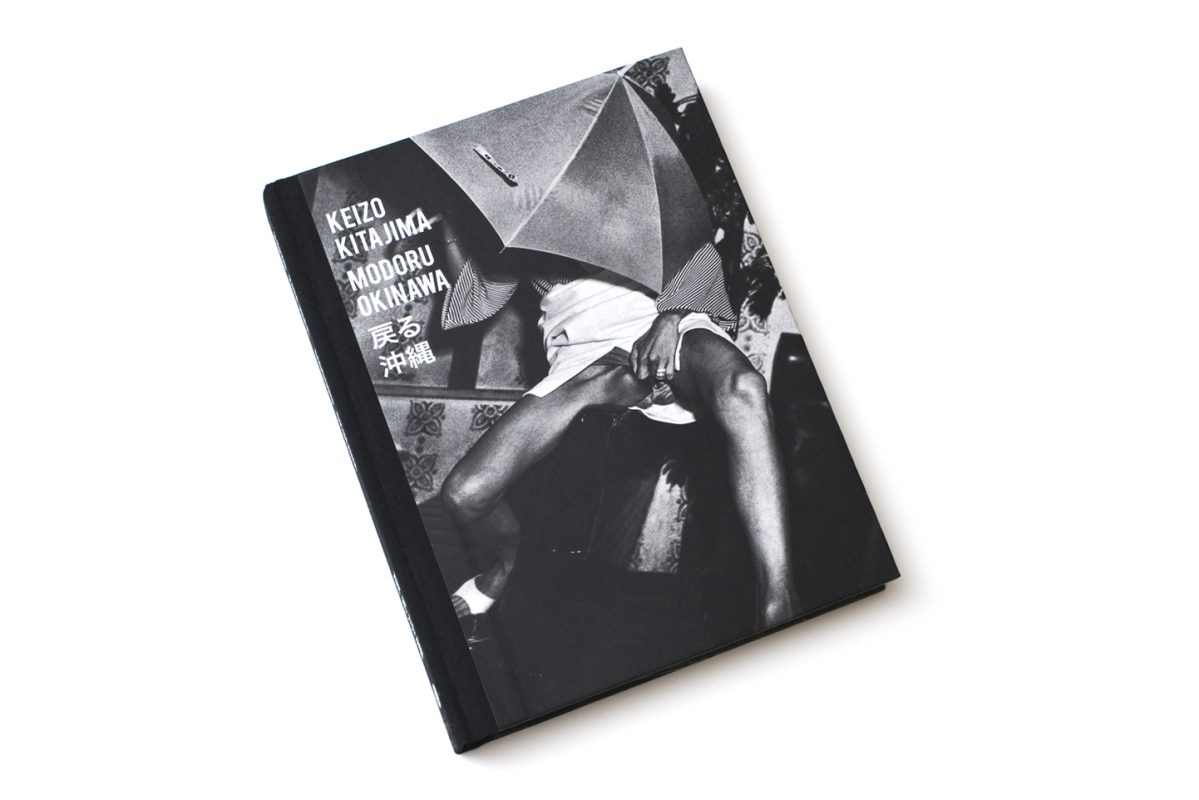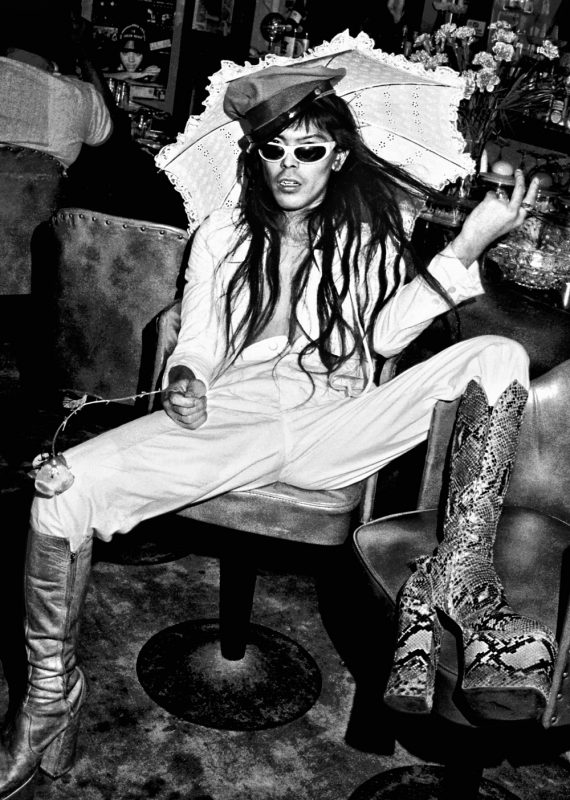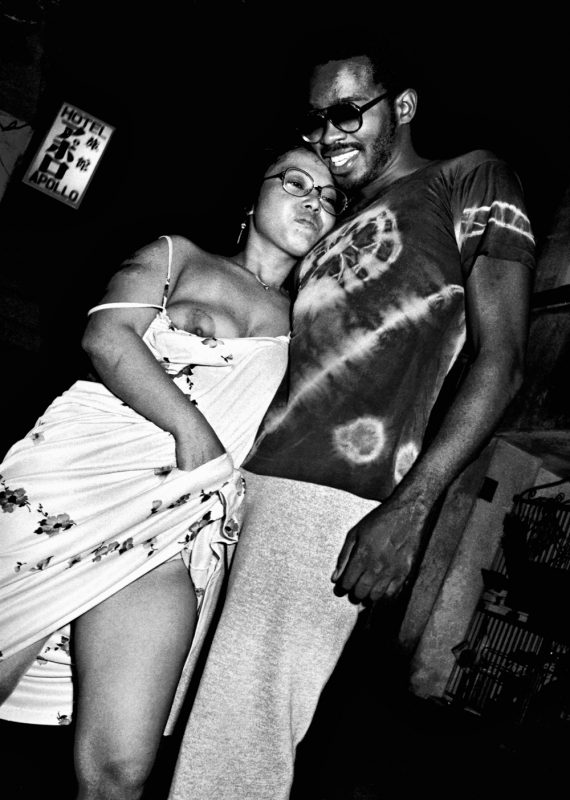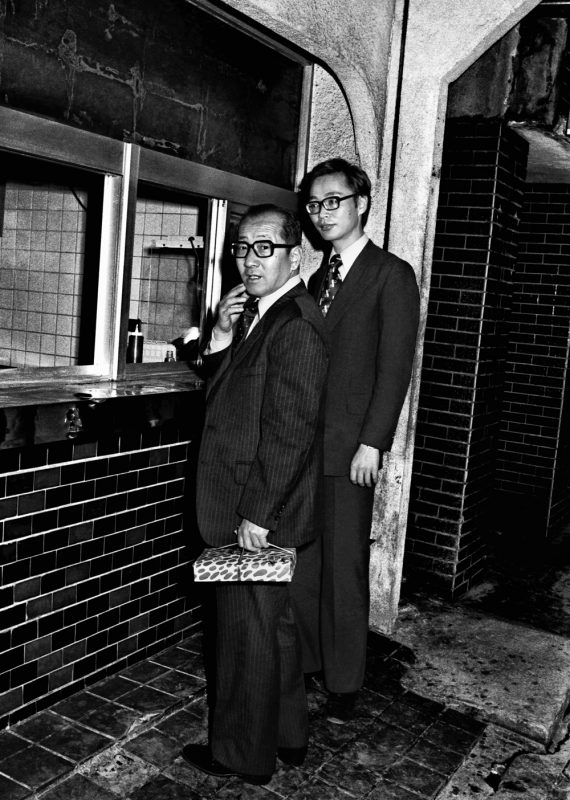Keizo Kitajima
Modoru Okinawa
Gomma Books
In 1980 Keizo Kitajima visited and photographed frequently in the bars, streets, and brothels of the red light district of Koza, a city in Okinawa Prefecture of Japan. The nearby Kadena U.S. Air Force base on the island had been, and still is, a controversial presence since it was built in 1945, sparking riots and protest for decades. Indeed, the B-52s that attacked North Vietnam took off from there. It was an area where cultures clashed and Kitajima was in and amongst it, photographing and selling prints to his subjects.
His initial plan was to self-publish bi-monthly magazines of this work starting in 1980 called Photo Express Okinawa much like his earlier booklets Photo Express Tokyo but only four issues were realised. Revisiting that series, Modoru Okinawa from Gomma Books, opens with an image of a wild-eyed man taming a writhing snake, an appropriate metaphor for what follows – a flash-lit tour through the seedy nightlife that seems to cater mostly to the Americans stationed in Okinawa. Kitajima’s camera is not ignored – it has the ability to be both invisible and provoke of his subjects. Scantily-clad prostitutes flaunt and seduce, male customers pose with their dates, fights break out. There are police interventions, sexual encounters and barmen. Bouncers hold their territory as local toughs hang on the fringes looking for opportunities. The sense of fun and debauchery is underlined by simmering aggression and where any night could either end well or very badly.
Kitajima says of this work: “Affection, hatred, rejection, acceptance: everything was there in Okinawa and nothing was a given. I wanted to make photographs that transcended all that… My generation was profoundly impacted by America. It is impossible to objectify my feelings about it.” In the title of Modoru Okinawa, the Japanese verb ‘moduru’, meaning to return, can refer to both physical and non-physical places. Modoru Okinawa is more than a document of a place, it transcends that physicality into a state of mind.
—Jeffrey Ladd
All images courtesy of Gomma Books. © Keizo Kitajima




